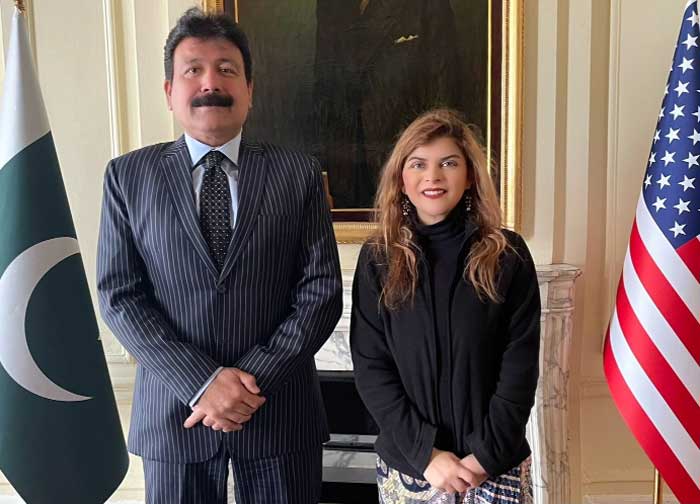In the recent incident involving Aliza Sehar, a young woman hailing from a rural background, entire nation confronted with a challenging situation that has far-reaching implications. Rather than succumbing to despair or dwelling solely on the negative aspects of the event, it is imperative that we view this incident as a clarion call, urging us to foster positive change and empower our youth for a brighter future.
Aliza Sehar’s story serves as a poignant reminder of the complex challenges faced by young individuals in our society today. Born in a rural stream, her intentions, when she decided to make a video in personal chat with someone, might have been benign. However, the rapid proliferation of digital content in our interconnected world can sometimes have unintended consequences. In Aliza’s case, a defamatory video went viral, leading to widespread trolling and harsh criticism. This incident raises critical questions about the responsibilities of individuals, families, educational institutions, and society as a whole.
One of the key lessons to draw from this incident is the need for a comprehensive approach to nurturing the next generation. While technological advancements have opened new horizons for communication and learning, they have also exposed our youth to unprecedented challenges. As a society, we must prioritize education and awareness initiatives that teach digital literacy, online ethics, and responsible social media usage. Parents, as the first educators, play a vital role in imparting these values to their children. Open dialogues at home about the potential risks and benefits of the digital world can go a long way in equipping young individuals with the necessary skills to navigate the online landscape safely and responsibly.
Educational institutions, too, must evolve to meet the demands of the digital age. Beyond traditional subjects, curricula should incorporate modules on internet safety, critical thinking, and media literacy. By empowering students with knowledge and critical skills, we can help them discern between reliable information and misinformation, fostering a generation of informed and discerning citizens.
Additionally, the incident underscores the urgent need for stringent regulations and ethical guidelines regarding online content. Regulatory bodies, alongside technology companies, must collaborate to create a safer online environment. Measures to prevent the spread of defamatory content, cyberbullying, and online harassment should be implemented and enforced rigorously. Simultaneously, there should be avenues for individuals to report harmful content easily, ensuring swift and effective responses to such incidents.
Furthermore, the role of families in shaping the character and values of our youth cannot be overstated. Beyond imparting digital literacy, families should instill a sense of empathy, respect for others, and a strong moral compass in their children. Teaching children about the impact of their words and actions on others can foster a culture of kindness and understanding, both online and offline.
In parallel, societal attitudes and norms must shift towards inclusivity and acceptance. The incident involving the young lady has sparked debates about gender dynamics and victimization within our society. Addressing these issues requires comprehensive efforts to challenge patriarchal mindsets, promote gender equality, and ensure the safety and dignity of every individual, regardless of their gender.
Moreover, the incident highlights the importance of mental health support for those affected by online harassment. The emotional toll of cyberbullying and public shaming can be devastating. As a society, we must invest in mental health resources, ensuring that individuals who experience online abuse have access to counseling and support services. Creating safe spaces for victims to share their experiences and seek help is crucial in mitigating the psychological impact of online harassment.
While this incident raises important concerns, it also presents an opportunity for collective introspection and positive change. As a nation, we are blessed with a young population brimming with potential, creativity, and resilience. It is incumbent upon us to provide them with the necessary tools, support, and guidance to navigate the complexities of the modern world successfully. Emphasizing the values of empathy, kindness, and respect can create a societal framework where individuals feel secure, valued, and empowered to contribute meaningfully.
In addition to addressing the immediate challenges posed by online harassment, we must focus on long-term strategies to nurture a generation of responsible and compassionate citizens. This requires a holistic approach that involves educational institutions, families, communities, and the government working in tandem. Schools and colleges should not only teach academic subjects but also impart essential life skills, such as conflict resolution, emotional intelligence, and effective communication.
Moreover, vocational training programs and mentorship initiatives can play a pivotal role in guiding young individuals toward fulfilling and sustainable careers. By equipping them with practical skills and real-world knowledge, we can enhance their employability and empower them to shape their destinies. Collaborations between educational institutions and industries can bridge the gap between theoretical learning and practical application, ensuring that graduates are well-prepared for the demands of the job market.
Furthermore, investing in youth entrepreneurship and innovation can unleash the creative potential of our young population. Providing grants, mentorship, and resources to aspiring entrepreneurs can stimulate economic growth and create job opportunities. Encouraging innovation and entrepreneurship from an early age can instill a spirit of initiative and self-reliance, enabling young individuals to become drivers of change and progress in society.
In addition to education and economic empowerment, fostering a sense of civic responsibility among our youth is crucial. Engaging them in community service and volunteerism can cultivate a strong sense of belonging and social cohesion. By actively participating in initiatives that address societal challenges, young individuals can develop empathy, leadership skills, and a deep understanding of community needs.
Furthermore, promoting diversity and inclusivity in all sectors of society is essential. Embracing individuals from diverse backgrounds, cultures, and perspectives enriches our collective experiences and strengthens social harmony. Educational institutions and workplaces should actively promote diversity and create inclusive environments where everyone feels valued and respected.
Additionally, encouraging youth involvement in decision-making processes can empower them to shape the future of our nation actively. Providing platforms for young individuals to voice their opinions, propose solutions, and participate in governance initiatives can instill a sense of civic pride and responsibility. By valuing their perspectives and contributions, we can nurture a generation of proactive and engaged citizens who are invested in the progress of our society.
Moreover, investing in cultural and recreational activities can provide our youth with avenues for self-expression and personal growth. Supporting art, music, sports, and other creative pursuits can nurture talent and foster a sense of achievement and belonging. Cultural initiatives also play a vital role in preserving our heritage and traditions, connecting younger generations with their roots and fostering a sense of cultural pride.
In this crucial moment, it is imperative for the regulatory bodies in the education sector, spanning from tertiary to higher education levels, to embark on a transformative journey. The existing outdated methods of rigid syllabi and standardized exams must make way for innovative, practical approaches that harness and channel the immense potential within our youth. The shift should be towards scientifically designed curricula that systematically unlock and maximize human capabilities. Subjects such as finance, information technology, culinary arts, hospitality, insurance, self-defense, contemporary skills, socio-cultural etiquettes, personal finance, public speaking, entrepreneurship, and stress management need an immediate overhaul. It’s high time we replace the old with the new, ensuring our graduates are equipped with knowledge and skills that meet the demands of the modern world. By empowering our youth with relevant education, we not only deter deviant behavior and outdated practices but also instill in them the values of coexistence and mutual respect. We must recognize that our actions, both negative and positive, collectively shape the future of our society.
Moreover, there are countless unnoticed incidents that, if brought to public attention, could tarnish the reputation of our nation. As responsible citizens, we must rise above such incidents, demonstrating magnanimity through swift and positive actions to protect the dignity of individuals and families alike.
Let us embrace the philosophy of ‘live and let live,’ understanding that we are all interconnected and share the responsibility for the collective well-being of our society. Hope fuels the spirit of humanity, and it is our collective responsibility to nurture this hope. Let us pledge to guide this youthful generation with proactive initiatives, fostering positivity at the individual, familial, communal, and societal levels. Ultimately, we are one family, one community, and one nation, united in our endeavor to create a brighter future for all.



